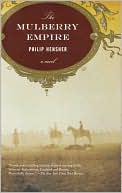Category Books
- Fiction Books & Literature
- Graphic Novels
- Horror
- Mystery & Crime
- Poetry
- Romance Books
- Science Fiction & Fantasy
- Thrillers
- Westerns
- Ages 0-2
- Ages 3-5
- Ages 6-8
- Ages 9-12
- Teens
- Children's Books
- African Americans
- Antiques & Collectibles
- Art, Architecture & Photography
- Bibles & Bible Studies
- Biography
- Business Books
- Christianity
- Computer Books & Technology Books
- Cookbooks, Food & Wine
- Crafts & Hobbies Books
- Education & Teaching
- Engineering
- Entertainment
- Foreign Languages
- Game Books
- Gay & Lesbian
- Health Books, Diet & Fitness Books
- History
- Home & Garden
- Humor Books
- Judaism & Judaica
- Law
- Medical Books
- New Age & Spirituality
- Nonfiction
- Parenting & Family
- Pets
- Philosophy
- Political Books & Current Events Books
- Psychology & Psychotherapy
- Reference
- Religion Books
- Science & Nature
- Self Improvement
- Sex & Relationships
- Social Sciences
- Sports & Adventure
- Study Guides & Test Prep
- Travel
- True Crime
- Weddings
- Women's Studies
The Mulberry Empire » (Reprint)

Authors: Philip Hensher
ISBN-13: 9781400030897, ISBN-10: 1400030897
Format: Paperback
Publisher: Knopf Doubleday Publishing Group
Date Published: October 2003
Edition: Reprint
Author Biography: Philip Hensher
Philip Hensher is a critic and the author of five works of fiction, including Kitchen Venom, winner of the Somerset Maugham Award. One of Granta’s Best Young British Novelists for 2003 and a finalist for the W. H. Smith Literary Award for The Mulberry Empire, he is a columnist for The Independent and chief book reviewer for The Spectator. He lives in South London.
Book Synopsis
With Tolstoyan sweep and Dickensian vitality, this epically involving historical novel relates England’s tragic adventure in Afghanistan, which began with the triumphant arrival of the Army of the Indus in 1839 and ended three years later in rout and massacre.
At the center of The Mulberry Empire is Alexander Burnes, a Scots explorer who travels to the unfathomably remote kingdom of Afghanistan and first befriends and then reluctantly betrays its wise and impeccably courteous Amir. But he is only one character in a cast that includes ladies and generals, princes and deserters, all brilliantly and sympathetically realized. At once stirring and harrowing, exotic and cautionary, and as vividly colored as a Persian miniature, the result is a tour de force of re-creation and invention.
Publishers Weekly
Hensher's ambitious new novel (his first to be published in the United States) concerns a lesser-known chapter of Afghan history the British occupation of Kabul in 1839. In the mid-1830s, Alexander Burnes, a British officer, became the London sensation du jour after publishing a book on his adventures in the East, including his encounters with the Afghan prince, Amir Dost Mohammed Khan. His book roused British interest in Afghanistan, a possible new colony and market. Fearing that the Russians might take Kabul first, the British marched into the city, ousted the Amir, and replaced him with one favored by their ally, the Punjabi king. Though the British troops succeeded and remained encamped outside Kabul for three years, the Afghanis at last attacked and sent 16,000 British troops retreating through the valley of their death: they were ambushed, and only one survived. Adopting a part timeless, part ironic storytelling voice, Hensher follows several characters in this vast tapestry: Burnes, of course, and the Amir, but also Bella Garraway, the woman the Amir courts during his year in London; Charles Masson, a British deserter who finds refuge in Kabul; and Vitkevich, a Wilde-like Russian emissary, among many others. Mastering the light touch necessary for a complex history, Hensher moves easily from realm to realm, though he best captures the vanities of society whether of Britain's "upper few thousand" or Moscow's salons. The shifting focus weakens the drama, but what Hensher loses in tension he makes up for in information. Thus the reader learns Persian has six words for mulberry a holy fruit of Islam and Pushto, uncountable. For the post-modern, post-empire reader, ironies abound, and gently as Hensher tells it, the tale is cautionary: any nation should think twice before unseating a foreign prince. (Sept. 3) Forecast: The novel's desultory pace may deter some readers, but the subject matter could hardly be more timely, and prominent reviews will drive demand. Copyright 2002 Cahners Business Information.
Table of Contents
Subjects
 Fiction Subjects
Fiction Subjects  Character Types - Fiction
Character Types - FictionFiction Books & Literature
 Fiction Subjects
Fiction Subjects  Politics & Social Issues - Fiction
Politics & Social Issues - FictionFiction Books & Literature
 Historical Fiction
Historical Fiction  Colonial India - Historical Fiction
Colonial India - Historical FictionHistory
 Historical Fiction
Historical Fiction  Colonial India - Historical Fiction
Colonial India - Historical FictionNonfiction
 History
History  Historical Fiction
Historical Fiction
